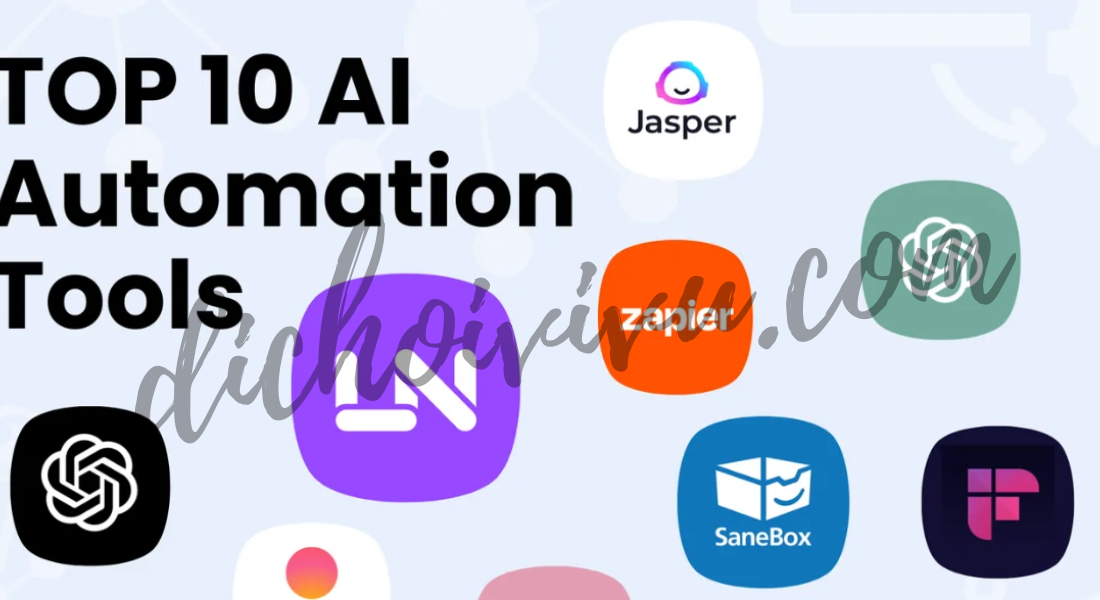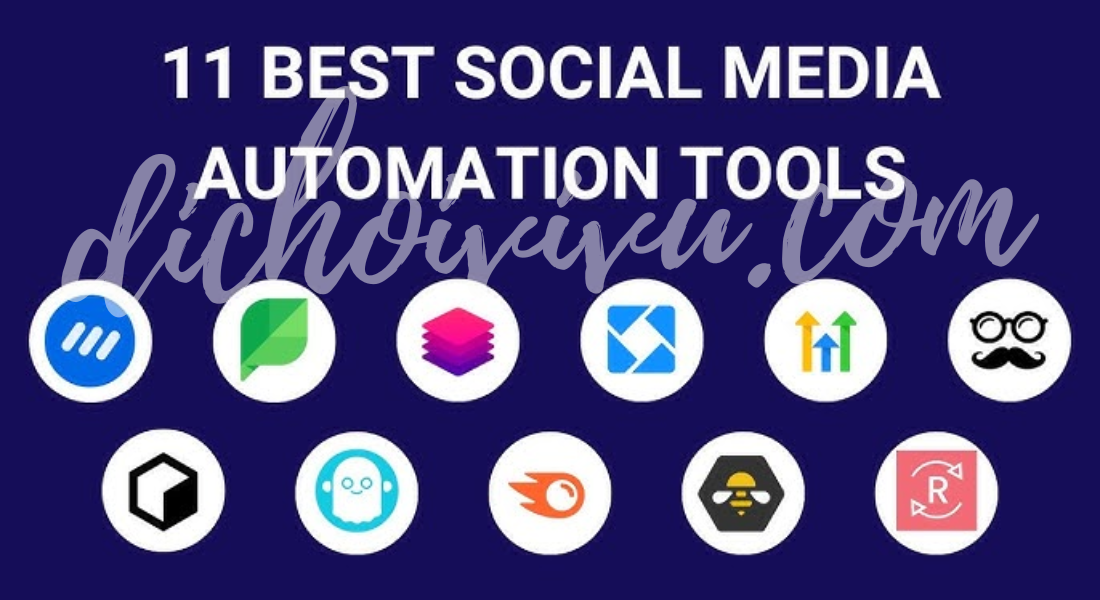Transforming Business with AI Automation Tools: A Comprehensive Guide
Introduction
The rise of AI has redefined how businesses operate, bringing efficiency, accuracy, and scalability to processes previously bogged down by manual work. AI business automation tools are empowering organizations to streamline workflows, reduce operational costs, and gain a competitive edge in a fast-paced digital environment. In this guide, we’ll explore the top AI automation tools that businesses are using today and how they’re transforming industries through smart automation.
Why AI Automation Tools Matter for Businesses
AI automation tools aren’t just trends; they’re essential assets for businesses aiming to innovate and optimize their processes. By integrating AI, companies can automate repetitive tasks, minimize human error, and free up resources for more strategic endeavors. These tools significantly reduce the time and effort required for manual processes, from customer service to data analysis.
Moreover, automation powered by AI provides businesses with valuable insights that were previously challenging to obtain. For instance, AI tools in customer service can analyze conversation patterns to identify common pain points, helping companies make informed improvements.
Key Features of Effective AI Automation Tools
To be effective, AI automation tools should offer specific functionalities. Here’s a look at the must-have features:
- Natural Language Processing (NLP): NLP allows AI to understand and respond to human language, making tools more intuitive and user-friendly.
- Machine Learning: With machine learning capabilities, these tools continuously improve by analyzing data and learning patterns over time.
- Integration Capabilities: Effective AI tools seamlessly integrate with existing systems, allowing businesses to enhance rather than replace their current workflows.
- Data Analysis: Many AI tools offer advanced data analytics, providing real-time insights that help decision-making.
- Scalability: As a business grows, so should its automation tools. Scalability ensures that tools adapt to increased demand and data without sacrificing performance.
Top AI Business Automation Tools
Below is a curated list of some of the most powerful AI business automation tools available today. These tools cater to various business needs, from marketing to data processing, customer service, and beyond.
1. Zapier
Zapier is a versatile automation tool that connects over 2,000 apps, enabling businesses to automate repetitive tasks without coding. It creates “Zaps,” automated workflows that trigger specific actions based on defined rules. For instance, businesses can use Zapier to automate lead nurturing by connecting their CRM with email marketing software.
2. UiPath
For companies looking to automate back-office operations, UiPath is a leading choice. It uses robotic process automation (RPA) to mimic human interactions with software, making it ideal for tasks like data entry, invoice processing, and other rule-based activities. Additionally, UiPath integrates AI and machine learning, allowing businesses to automate complex decision-making processes.
3. Hootsuite Insights
Hootsuite Insights is a social media monitoring tool powered by AI. By analyzing social media conversations, it helps businesses understand brand sentiment, track market trends, and engage with their audience more effectively. This tool is particularly useful for marketing departments looking to improve their social media strategy through data-driven insights.
4. ChatGPT for Customer Service
Automated customer service has advanced significantly with AI-powered chatbots like ChatGPT. By handling common customer queries, these chatbots reduce the burden on human agents, allowing them to focus on complex issues. ChatGPT can be trained to understand customer intent, answer frequently asked questions, and even escalate issues when needed.
5. HubSpot’s AI-Powered CRM
HubSpot’s AI-powered CRM enables businesses to automate customer relationship management, from capturing leads to segmenting audiences. It uses AI to analyze customer behavior, making it easier to create personalized marketing campaigns. The platform’s predictive capabilities also help sales teams prioritize leads, maximizing conversion rates.
Implementing AI Automation Tools: Best Practices
Implementing AI tools effectively requires thoughtful planning. Here are some best practices to keep in mind:
- Identify High-Impact Areas: Not all processes benefit equally from automation. Focus on areas where automation can deliver the most significant value, such as customer service, finance, or operations.
- Start Small: Rather than implementing multiple tools simultaneously, start with one or two high-priority tools and expand as your team becomes familiar with automation.
- Monitor Performance: Regularly evaluate the performance of your AI tools to ensure they’re meeting business goals. Adjust workflows and settings as needed based on the data these tools provide.
- Train Your Team: Equip employees with training on how to use these AI tools effectively. A team familiar with automation is more likely to use it strategically.
- Ensure Data Privacy and Security: As these tools handle sensitive information, ensuring compliance with data privacy regulations, such as GDPR, is essential.
Overcoming Challenges in AI Automation
While the benefits are substantial, implementing AI automation can present some challenges:
- Data Quality: AI relies heavily on data, so poor data quality can impact the effectiveness of automation tools. Ensuring that data is clean, accurate, and current is critical.
- Employee Resistance: Employees may fear that automation will replace their roles. Communicating that AI aims to assist rather than replace them can help ease this concern.
- Initial Investment: High-quality AI automation tools can be costly. However, businesses should view this as a long-term investment that can lead to significant savings.
- Adaptability: As technology advances, businesses need tools that can adapt to changing trends and requirements. Choosing tools with scalable and flexible architectures is advisable.
The Future of AI Business Automation
The future of AI automation is promising, with advancements in areas like cognitive computing, deep learning, and natural language processing. These developments will enable even more complex tasks to be automated. In customer service, for instance, future AI bots may handle entire conversations without human intervention, delivering personalized and highly accurate responses.
As AI becomes more sophisticated, automation tools will likely incorporate more predictive capabilities, allowing businesses to anticipate needs before they arise. Imagine a sales tool that not only automates data entry but also analyzes customer behavior patterns to recommend the best times to reach out or even the ideal content for engagement. Such predictive power could transform the sales and marketing landscape, making campaigns more precise and increasing conversion rates.
AI Accessibility for Small and Medium-Sized Businesses
Additionally, we can expect AI automation tools to become more accessible to small and medium businesses. As costs decrease and tools become more user-friendly, companies of all sizes will be able to implement and benefit from AI-driven automation. This shift will democratize access to AI technology, leveling the playing field in competitive markets. Smaller businesses that previously lacked the budget to invest in advanced technology will now have access to powerful AI tools, allowing them to compete with larger corporations more effectively.
The rise of cloud-based AI platforms is also facilitating this shift. Platforms like Google Cloud AI and Microsoft Azure offer scalable, pay-as-you-go options, enabling companies to experiment with AI without a significant upfront investment. By subscribing to these platforms, small and medium-sized businesses can access high-quality AI tools and gradually scale their usage based on demand, making AI-driven automation more affordable and achievable.
Conclusion
AI business automation tools are transforming industries, allowing companies to operate more efficiently, make better decisions, and stay competitive. By automating repetitive tasks and providing actionable insights, these tools free up valuable resources, enabling employees to focus on what matters most. For any business aiming to stay ahead in today’s competitive landscape, investing in AI-driven automation is a strategic move toward sustainable growth.

